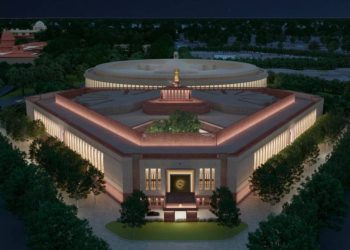This Post Is Recently Updated on Dec 21, 2023 @ 8:44 am by TBB Desk
The Colorado Supreme Court has issued a groundbreaking 4-3 decision, ruling that former President Donald Trump is ineligible to appear on the state’s 2024 Republican primary ballot, citing his engagement in insurrection. The decision, described as a “political and legal earthquake,” hinges on the 14th Amendment’s provision barring insurrectionists from holding federal office. The court’s judgment is particularly significant as it marks the first time a presidential candidate has been excluded from the ballot under Section 3 of the Fourteenth Amendment.
The majority opinion, which was unsigned, stated, “The sum of these parts is this: President Trump is disqualified from holding the office of president.” They elaborated that Trump’s efforts to overturn the 2020 election results constituted engaging in an insurrection. However, the Colorado Supreme Court has provided a provisional escape route for Trump. It put its ruling on hold until January 4, and if Trump seeks review in the U.S. Supreme Court, as he indicated he would, his name would remain on the primary ballot.
The case presents novel, complex, and extraordinarily consequential interlocking legal issues, and the U.S. Supreme Court’s involvement seems inevitable. It could take time for the justices to act, and the Colorado Republican primary, scheduled for March, could proceed unaffected. The justices may also consider the voters’ role in assessing Trump’s conduct post the 2020 election.
A Colorado trial judge had previously ruled that Trump engaged in an insurrection but accepted his argument that Section 3 of the 14th Amendment did not apply to him. The Colorado Supreme Court affirmed the trial judge’s ruling on the insurrection but reversed the decision on Section 3’s applicability, stating it barred Trump from seeking reelection.
The interpretation of Section 3 has its critics. Former Attorney General Michael B. Mukasey argued that the provision is limited and does not apply to elected officials like the president. However, law professors William Baude and Michael Stokes Paulsen countered, arguing that the provision includes insurrectionists who once served as president and vice president. Other scholars, including Josh Blackman and Seth Barrett Tillman, disagree, suggesting that the president is not an ‘officer of the United States’ for the purposes of Section 3.
The state Supreme Court addressed several other issues. It ruled that Congress does not need to act to disqualify candidates, Trump’s eligibility is a matter for the courts, and the House’s Jan. 6 report was admissible evidence. Trump’s speech on that day was not protected by the First Amendment, and states are authorized to assess the qualifications of presidential candidates.
The case has drawn comparisons to Bush v. Gore, with the U.S. Supreme Court once again being central to a U.S. presidential election. Professor Richard L. Hasen of UCLA noted the precarious nature of the current political instability in the United States compared to the situation in 2000.
Key Points
- Historic Ruling: Colorado Supreme Court disqualifies Trump from state’s 2024 Republican primary ballot.
- 14th Amendment’s Role: Trump found to have engaged in insurrection, violating the 14th Amendment.
- Provisional Escape Route: Ruling on hold until January 4, pending U.S. Supreme Court review.
- Legal Complexities: Case presents novel, complex issues; U.S. Supreme Court’s involvement likely.
- Broader Implications: Ruling highlights the contentious and unstable nature of current U.S. politics.










